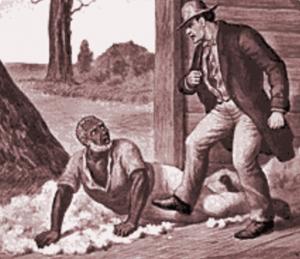A reader of Robert Penn Warren’s novel All the King’s Men, quite possibly the best political fiction we have (also, the recent film is quite good and follows the book closely), will receive an introduction to an overlooked style of American literature employed by some unjustly overlooked Catholic authors, Walker Percy first among them. This is the Southern Agrarian tradition. These thinkers, whose chief outlets were small circulation periodicals of literary and cultural criticism, emphasized religiosity, the identity of locality, the protection of civil society and its mediating institutions, family traditionalism, pride of history and heritage, and anti-interventionism. They actively opposed communism, corporate and social welfare, demographic change, and governmental, union, or corporate authoritarianism. Never organized, rarely agreeing, occasionally disagreeable, but united by sentiment, their influence still resonates. For these figures, a modernity overly enamored with economy, power, and material accumulation was insufficiently concerned with the content and development of family and civic character. Restraint, humility, and a more responsible (that is, cautious) personal stewardship were highly valued. They sought the local and the old rather than the global, the new, the abstract, or the ideological. Southern agrarians generally believed that family is the most crucial institution, and the very foundation of a good society which faithfully adheres to permanent things and ancient moral truths.
Against these stand both big government and big business, which look out for each other at the expense of community-based moral custom. M. E. Bradford told the Heritage Foundation in a 1986 lecture: “All of our social myths presupposed some version of the corporate life – that man is a social being, fulfilled only in the natural associations built upon common experience, upon the ties of blood and friendship.” No president can unite a concern for social health, however eloquently expressed, with the valued traditions of a community. Such a task must fall to smaller units of organization. Otherwise, a spirited passion – such as the temptation among government officials to create equality of outcome – “threatens to swallow up our reverence for law, responsible character, moral principle, and inherited prescription.”
Southern agrarian critics of expansive governmental power continuously expressed hostility toward perceived threats to living in a more sanctified and noble way. Among the most persistent of these threats were destruction to enduring and valued mediating institutions between the family and the state. A decline of these institutions damages group cohesion. The means of destruction include militarization, industrialization, growth in the size and scope of government, and the rapid imposition of a cultural decay made possible by new technologies. And so religion and politics, for example, were not to be synonyms – there is no “moral equivalent to war.” The failure to make a distinction might make one susceptible to the messianism of centralizers like Wilson and the Roosevelts, presidents perceived by agrarians to utilize foreign conflict as an instrument of domestic control. Such presidents were also perceived as being a friend of not only big government, but capitalists bent on making big industry bigger. These were false, synthetic communities, the products of coerced unity. Instead, there should be the protection of the social order – family, neighborhood, local community, and region foremost – from the ravishments of the centralized political state.
The language of southern agrarianism conveyed that it is easier to destroy than to create. There was skepticism of attempts to remake community in obedience to an all-encompassing political or social goal. The language is infused with a moralizing sentiment and set against relativism and ideology. Agrarian writers presented their readers with a language of impending defeat, even as they nobly fortify against the impending flood. Metaphors of struggle abound in the texts. John Crowe Ransom’s manifesto I’ll Take My Stand stated that the South, “looking defensively about her in all directions upon an industrial world,” must not succumb to the “weapons of industrialism.” He then asks: “Will the Southern establishment, the most substantial exhibit on this continent of a society of the European and historic order, be completely crumbled by the powerful acid of the Great Progressive Principle?” The defeat of the Civil War, he continues, has physically impaired the ability of the region to present “an attractive example of its philosophy in action,” the result being that the “American progressive principle has developed into a pure industrialism without any check from a Southern minority whose voice ceased to make itself heard.” Accompanying the siege mentality is a belief that the South represents humanist values universally applicable. A justification of regional sentiments is embodied in a dramatic narrative – one of loss and closed possibility. These arguments propose that threats imperil not only a nation or region but a critical element of civilization as well. The threat comes from an identifiable enemy – for Southern Agrarians, the atomizing forces of modernity – and a response, even if it is lament and retreat, is necessary.
The Southern Agrarian, highly attuned to the local, was a questioner of modernity and of the belief in constant progress. And so, given the confines of sinful humanity, they attempted to preserve for their audience some measure and memory of a lost good, of localism and family and a first altruism to those closest to them, the kinship, who need it the most.












